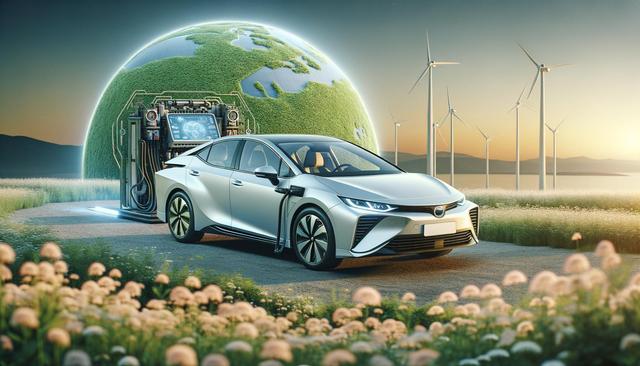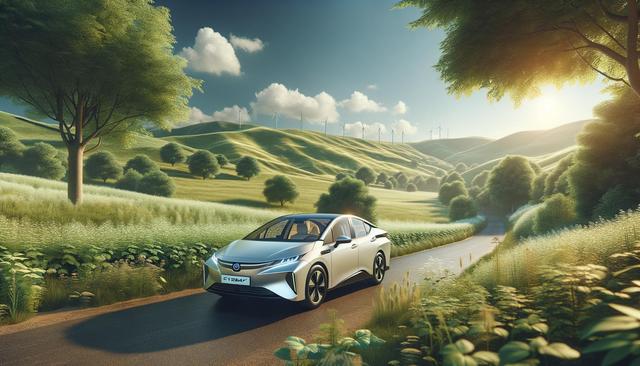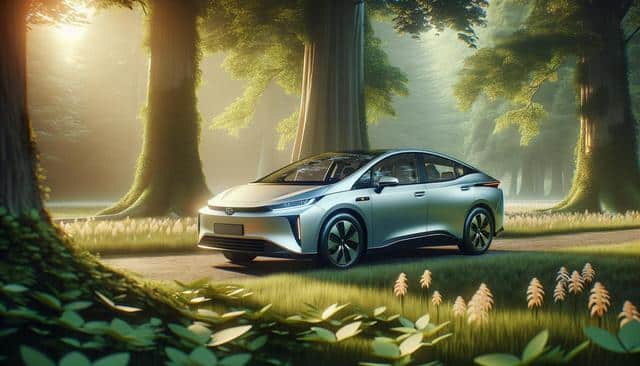
Understanding Hybrid Cars: A Smart Step Toward Sustainable Driving
What Are Hybrid Cars?
Hybrid cars combine the use of a traditional internal combustion engine with an electric motor to power the vehicle. This dual setup allows for greater fuel efficiency and reduced emissions compared to conventional gas-powered cars. There are different types of hybrid systems, such as full hybrids, mild hybrids, and plug-in hybrids, each designed with varying levels of electric involvement. Full hybrids can run solely on electricity for short distances, while mild hybrids use electric power to assist the engine but cannot drive on electricity alone. Plug-in hybrids offer a larger battery that can be charged via an external source, enabling longer electric-only travel.
These vehicles automatically switch between or combine both power sources depending on driving conditions. This dynamic system helps optimize fuel consumption, especially in stop-and-go traffic where electric power is more effective. As more drivers seek eco-friendly transportation options, hybrid technology continues to evolve, becoming more efficient and accessible. For those considering a switch to hybrid vehicles, resources like https://go.jexli.com/postback?clickId={click_id}&payout={epayout}&p2={campaign} can provide guidance and offers based on your preferences.
The Environmental and Economic Impact
One of the primary reasons consumers are drawn to hybrid cars is their lower environmental footprint. Hybrids significantly reduce greenhouse gas emissions by relying more on electricity and less on fossil fuels. This makes them attractive to environmentally conscious drivers aiming to reduce their carbon impact without sacrificing convenience or range.
From a financial standpoint, hybrid cars often provide long-term savings through better fuel economy. Although the initial purchase price can be higher than that of traditional cars, the cost savings on fuel and potential tax incentives often balance it out over time. Key benefits include:
- Reduced fuel costs due to higher mileage per gallon
- Potential eligibility for government incentives or tax rebates
- Lower emissions-related fees in some urban areas
For individuals looking to explore available hybrid options or learn more about incentives, visiting platforms like https://go.jexli.com/postback?clickId={click_id}&payout={epayout}&p2={campaign} can be a helpful starting point.
Technology Behind Hybrid Systems
Hybrid vehicles rely on a combination of mechanical and electrical engineering to achieve seamless transitions between power sources. The central components include:
- Electric motor and battery pack
- Internal combustion engine (ICE)
- Regenerative braking system
- Power control unit
Regenerative braking is particularly innovative—it captures energy typically lost during braking and redirects it to recharge the battery. This process increases efficiency without requiring external charging for non-plug-in hybrids. The battery and motor work in tandem with the gasoline engine, managed by an intelligent control system that determines the most efficient power source in real-time.
As battery technology improves, newer hybrid models offer increased range, faster charging times for plug-in variants, and more compact systems. Exploring the latest models and their technical specifications can be done through resources like https://go.jexli.com/postback?clickId={click_id}&payout={epayout}&p2={campaign}, which often highlight innovations in hybrid technology.
Driving Experience and Maintenance
Many drivers are surprised by the smooth and quiet experience hybrid cars offer. Since electric motors provide instant torque, acceleration is often brisk and responsive. At low speeds, hybrids typically run silently on electric power alone, contributing to a more peaceful ride, especially in urban environments.
Maintenance for hybrid vehicles is generally comparable to that of traditional cars, but with a few differences. The regenerative braking system, for instance, reduces wear on brake components, potentially extending their lifespan. Battery maintenance varies depending on the type of hybrid and manufacturer, but most modern hybrids come with robust battery warranties.
Key considerations for hybrid maintenance include:
- Regular software updates for power management systems
- Monitoring battery health
- Checking and replacing hybrid-specific fluids
To find service providers or compare hybrid models based on maintenance needs, drivers can consult resources such as https://go.jexli.com/postback?clickId={click_id}&payout={epayout}&p2={campaign} for more tailored recommendations.
Is a Hybrid Car Right for You?
Deciding whether a hybrid car fits your lifestyle depends on your driving habits, environmental priorities, and budget. Urban drivers who frequently encounter traffic may benefit from the fuel savings and reduced emissions that hybrids offer. On the other hand, those who regularly take long trips might consider plug-in hybrids for their extended electric range.
Here are some scenarios where a hybrid vehicle might be a good choice:
- You drive primarily in city environments with stop-and-go traffic
- You’re looking to reduce your fuel expenses over time
- You want to lower your carbon footprint without switching to a fully electric vehicle
- You’re eligible for local tax incentives or rebates
Ultimately, hybrid cars provide a practical and efficient middle ground for those not ready to transition to fully electric vehicles. Interested buyers can explore current models and offers through trusted platforms like https://go.jexli.com/postback?clickId={click_id}&payout={epayout}&p2={campaign}, which can help narrow down choices based on personal needs and preferences.
Conclusion: Embracing a Greener Drive
Hybrid cars represent a thoughtful solution for drivers who want to reduce environmental impact without sacrificing the familiarity and convenience of traditional vehicles. With advancements in battery technology, improved fuel economy, and growing infrastructure, hybrid vehicles are becoming a compelling option for a wide range of drivers. Whether you’re motivated by environmental concerns, fuel efficiency, or financial savings, exploring hybrid options through resources like https://go.jexli.com/postback?clickId={click_id}&payout={epayout}&p2={campaign} can help you make an informed decision toward a smarter, cleaner drive.


